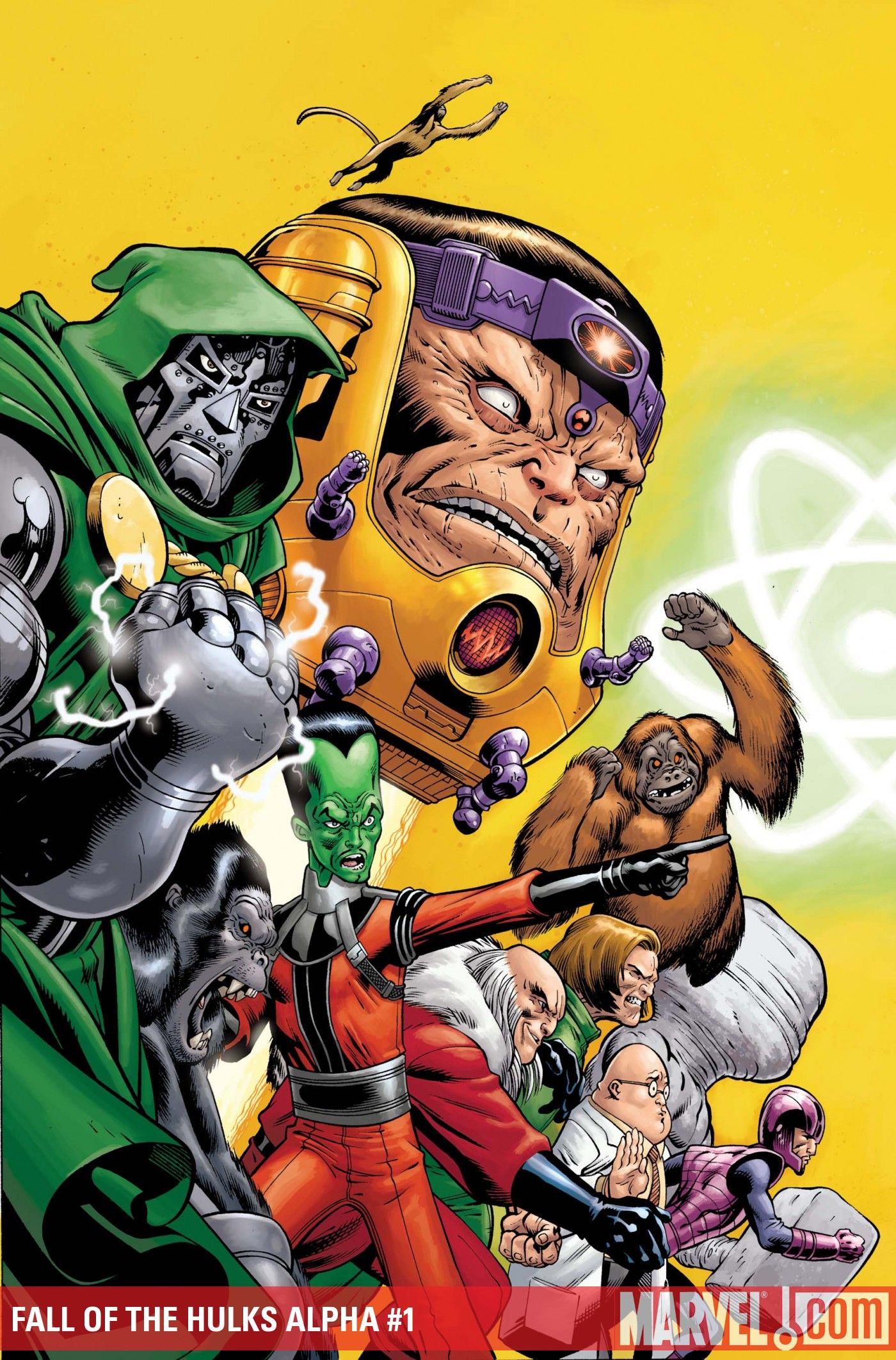"Fall of the Hulks: Alpha" ostensibly kicks off the next big Hulk storyline. The Jeff Parker-penned story details the assemblage of a group of super-intelligent villains who form an alliance along the lines of the "Illuminati," and similarly details their exploits throughout Marvel History as they attempt to reassemble the collections of books rescued from the Library at Alexandria.
Quite why they're doing this is never particularly well-established, however. We're told that the books contain hidden knowledge, but for such an unusually organized group of villains, there's little emphasis on a plan beyond the acquisition of them. Some token acknowledgment is given to each villain's heroic nemeses, but there's no greater plan that explains how and why the alliance works when, by all rights, it simply shouldn't.
Furthermore, it's hard to tell whether the nomenclature the Leader assigns their group -- The Intelligencia -- is supposed to be a joke or not given that the word is actually "intelligentsia."
Perhaps this is a comment on the misplaced arrogance of the villains, but one can only speculate. This fact, ambiguously presented though it is, does at least serve to emphasize the tonal problems that exist in the story. Parker does well to balance the campy, silver-age characterizations with the more threateningly complex evolutions of the characters over the years but, despite being a breezy read, the overall tone is deeply at odds with the rest of the Hulk line. Loeb's "Hulk" is filled with bombast, action and arrogance. Pak's "Incredible Hulk" is dark and philosophical. The light, near-comedic gait of this issue is comparable to neither, and considering the fact that it's presented as a bookend for a Hulk crossover, it'd be nice to see a little more of, well... the Hulk(s).
The fact that neither Pak nor Loeb wrote this issue speaks volumes about its importance to the coming event story. Although The Leader serves as protagonist, the connection to the Hulk line is ultimately nominal. The ending twist does reveal something about the origin of the Red Hulk, though not his identity, and not in a way that tells us anything especially new about the character. It's definitely a case of too little, too late.
Paul Pelletier provides art for the issue, and his timeless portrayal of superhero action makes the art a good fit for a story that spans multiple generations of Marvel history. Pelletier makes the near-herculean task of weaving a sprawling cast of characters and locations into a cohesive whole look relatively easy, and although the pages are densely-packed and exposition-heavy, the information on each page is clear and easy to read.
"FotH: Alpha," then, is an odd comic. As a stand-alone piece, it's a fun little jaunt through Marvel history that'll raise a smile in most readers. As an event bookend, though, it doesn't remotely work. Not because of any particular failings from the creative team, but simply because their remit is at odds with the book's apparent role. There's plenty to enjoy, but if you're only looking for revelations connected to the big Hulk event, it seems that you can safely skip this one.

